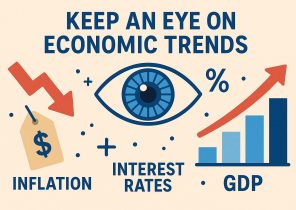Understanding the Importance of Portfolio Review
Reviewing your investment portfolio regularly is a crucial practice to ensure that your investments continue to align with your financial goals and risk tolerance. Changes in personal financial circumstances, economic conditions, and market performance can significantly impact your investment strategy. Therefore, maintaining a periodic review schedule helps in making informed decisions.
Why Regular Reviews Matter
Investment portfolios are not static. Factors such as changes in income, family status, or upcoming expenses can necessitate adjustments. Additionally, market volatility and shifts in the economic environment may affect your portfolio’s performance.
Adapting to Financial Changes
It is essential to adjust your investments as your financial situation evolves. For instance, if you receive a significant windfall, it may be beneficial to reassess your asset allocation to optimize growth while managing risk. Conversely, if you face unexpected financial obligations, you might need to re-evaluate your liquidity needs.
Components of an Effective Review Process
An effective portfolio review involves analyzing different components to ensure overall portfolio health. Key areas of focus include:
Asset Allocation: Assess if your current asset allocation aligns with your risk tolerance and investment timeline. Diversifying your investments can help mitigate risks.
Performance Evaluation: Compare your portfolio’s performance against relevant benchmarks to understand how well your investments are doing.
Expense Analysis: Review the management fees and other costs associated with your investments to ensure they do not excessively reduce your returns.
Tax Implications: Consider the tax consequences of your investments, especially if rebalancing or making large withdrawals.
Review Frequency
The frequency of portfolio reviews may vary depending on individual investor needs, but a common practice is to conduct reviews at least annually. However, significant life events or market changes may warrant more frequent assessments.
Making Adjustments
Post-review, you may find it necessary to make adjustments to your portfolio. These changes might involve reallocating assets, buying or selling securities, or investing in new opportunities to better suit your revised financial objectives.
Involvement of Financial Advisors
For individuals unfamiliar with the intricacies of investment management, seeking advice from financial professionals can be beneficial. Financial advisors can offer expertise on optimizing your portfolio and ensuring alignment with your goals.
Long-term Perspective
It’s important to approach portfolio reviews with a long-term perspective. While short-term market fluctuations can be unsettling, a well-considered review strategy focuses on maintaining a stable trajectory over time. This involves not only reacting to immediate changes but also anticipating future financial needs and objectives.
Risk Management
Managing risk is a critical component of portfolio review. By evaluating the potential risks and rewards associated with your current investments, you can devise strategies to mitigate any adverse effects. This might include diversifying into different asset classes or adjusting the proportion of high-risk investments to balance potential growth with security.
Behavioral Considerations
Human emotion can play a significant role in investment decisions. During your review, it is essential to remain objective and avoid impulsive actions driven by fear or overconfidence. Adopting a disciplined approach allows you to focus on data-driven insights rather than short-term emotions.
Conclusion
Regular portfolio reviews are essential to maintaining the relevance and effectiveness of your investment strategy. By systematically evaluating your portfolio, you can make informed adjustments that reflect changes in your financial situation and market conditions. Additionally, consulting with financial professionals can provide valuable guidance in refining your investment approach. Consistent review practices not only help in capitalizing on current market conditions but also prepare your portfolio for unforeseen economic shifts, ensuring your investments continue to meet your financial goals.
For further learning on managing investment portfolios, consider resources such as [this guide on portfolio management](#).
This article was last updated on: July 7, 2025








